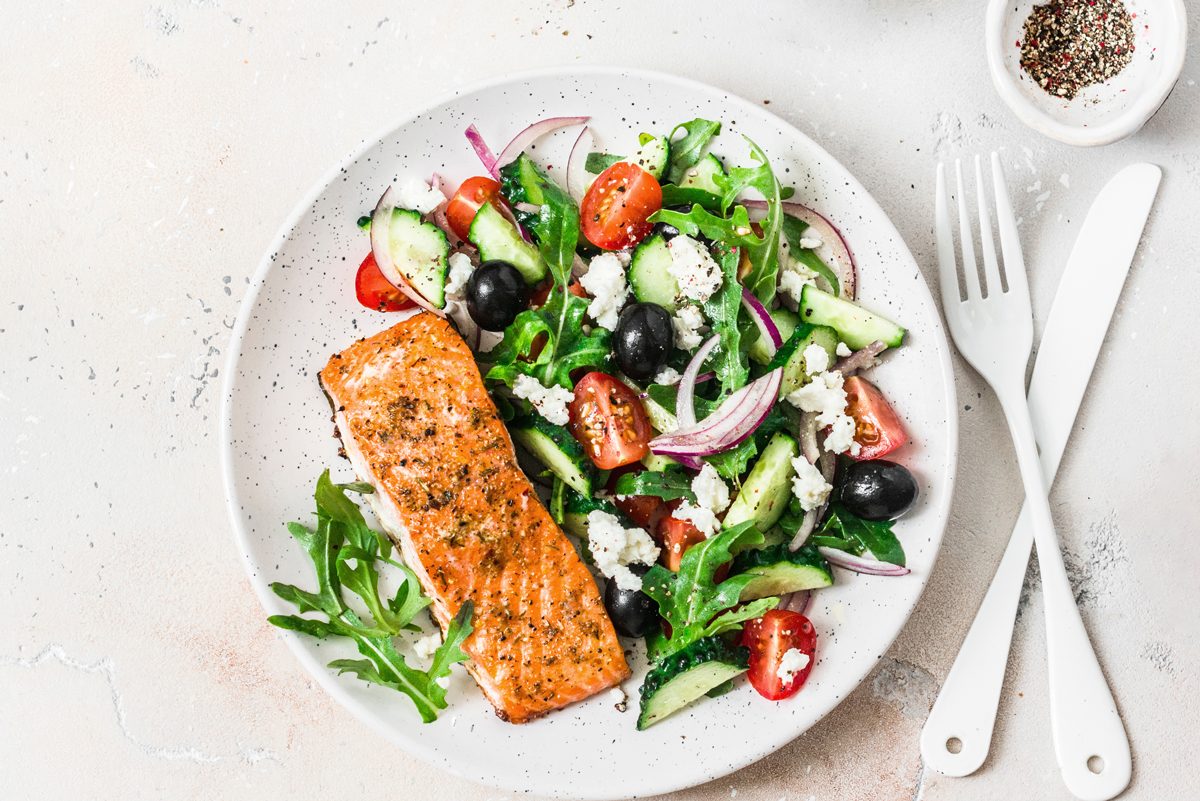The #1 Best Diet to Avoid Fatty Liver Disease, New Study Says

The liver plays a key role in keeping the body healthy, and the food choices you make can either help or hinder the performance of this vital organ. For example, choosing foods with plenty of dietary fiber and vitamins C and E can help keep the liver healthy, whereas drinking lots of alcohol or eating foods high in saturated fat may take a real toll on it.
Not only did they find that sticking more closely to this diet was associated with lower liver fat content, but also that eating more red and processed meat and drinking more alcohol were linked to higher liver fat content. So, sticking to white meat and plant-based proteins and cutting back on alcohol could also have a positive effect on your liver.
Fatty liver disease (known to scientists as hepatic steatosis) is often “a silent disease with few or no symptoms,” according to the U.S. Department of Health and Human Services’ National Institute of Diabetes and Digestive and Kidney Diseases (NIDDK), part of the National Institutes of Health. Should you experience symptoms, fatty liver disease may cause abdominal pain or fatigue. People with this condition have a higher risk of developing heart disease, high blood pressure, and type 2 diabetes, among other health issues.
Related: What Happens to Your Body On the Mediterranean Diet
The Mediterranean diet includes nutrient-dense dietary all-stars like beans, fruits and vegetables, nuts and seeds, and whole grains. According to the American Heart Association, it also involves sourcing fat primarily from olive oil, as well as eating dairy, eggs, and poultry in moderation and very little red meat, if any.
“One of the results of our analysis was that, in our study’s older population, the higher the adherence to the Mediterranean diet, the lower the risk of having fatty liver,” first author Luisa Lampignano told Eat This, Not That! on behalf of lead author Rodolfo Sardone MsBE, AuD, MPH. “However, we showed that, [even when they had] good adherence to the Mediterranean diet, subjects who consumed more red meat and wine had a higher risk of having fatty liver.”
Lampignano added that more longitudinal (i.e. long-term) studies and randomized trials were needed to confirm these findings.
“Lasting lifestyle changes rarely happen overnight,” Kelly Toups, MLA, RD, LDN, director of nutrition at the nonprofit Oldways, told Eat This, Not That!. “Take things one step at a time—cooking with olive oil instead of butter or margarine, or incorporating more whole grains, for instance—letting the delicious flavors of Mediterranean cuisine guide the way.”
For ways to begin exploring the Mediterranean diet at home, check out the 15 Best Mediterranean Diet Recipes. And to get all of the latest food and health news delivered straight to your email inbox every day, don’t forget to sign up for our newsletter!








